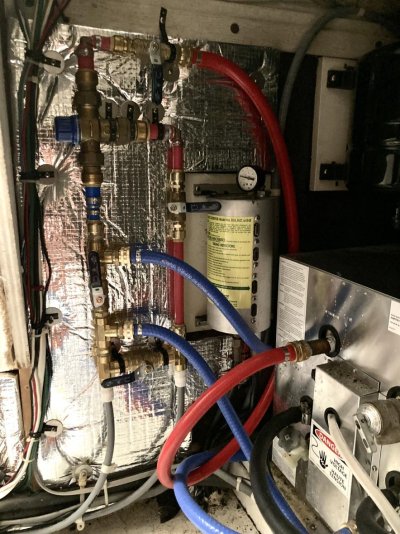mvweebles
Guru
- Joined
- Mar 21, 2019
- Messages
- 7,241
- Location
- United States
- Vessel Name
- Weebles
- Vessel Make
- 1970 Willard 36 Trawler
Simi - what if you reduced size of heating element on your water heater? I know it would take longer to top-up, but would it be more efficient?It "hurts" if power generation is borderline.
A bigger than needed HWS ( we have 37 gallons) requires more power to keep it hot and, if you miss a heating cycle it takes even more power / longer time to get it back to temp
We very rarely used the Genset for our first 5 years out here, the 2.5kw of solar could do the HWS in the middle of the day and the batts would still be at 100% by day's end.
Now we have the big lifepo4 bank that can handle big load without voltage sag we run an electric kettle , an induction cooktop and a piemaker as extras.
Every 3rd day we make water, all off of battery.
Solar no longer keeps up and Genset is coming into play.
But if we get rid of the 10+ year old 37 gallon has that takes 1.5 hours to "top up"
And replace with 10 gallon or smaller that takes 20 minutes to top up I reckon we'll be back to excess solar production at days end
Curious if you've done the math. You're pretty good at the electron mass-balance stuff.
Peter



